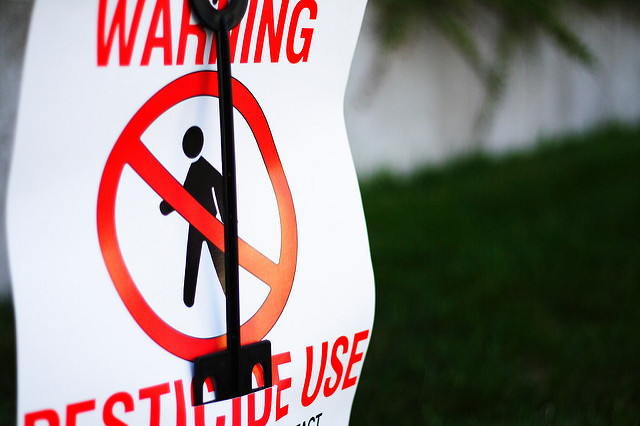A study that will be published in the April 2017 American Journal of Ophthalmology suggests parental pesticide exposure before or during pregnancy may play a role in the development of retinoblastoma.
 Researchers found using products to kill insects during pregnancy, and up to 1 month before, led to a 2.8-fold higher risk of nonhereditary, unilateral retinoblastoma in children.
Researchers found using products to kill insects during pregnancy, and up to 1 month before, led to a 2.8-fold higher risk of nonhereditary, unilateral retinoblastoma in children.
Retinoblastoma is the most common intraocular childhood cancer. Each year it affects approximately 300 children in the United States and 8,000 worldwide. Even with cure rates of 99% in the developed world, 70% of children continue to die of retinoblastoma in less developed countries. There is a hereditary link in about 40% of cases. The risk factors for sporadic retinoblastoma remain largely unknown.
The results of this new study dovetail with a study published in 2013. Researchers found some indication of elevated retinoblastoma risk associated with paternal pesticide exposure in the workplace during the 10 years prior to conception.
The latest study focused on maternal exposure to pesticides. Researchers conducted detailed telephone interviews with the mothers of retinoblastoma patients. The study included 282 cases (186 unilateral and 96 bilateral) from the Children’s Oncology Group. Researchers analyzed retinoblastoma risk using healthy, age-matched controls.
The study found using both household pesticide products, such as Raid, and professional lawn or landscaping services, were similarly correlated with an elevated risk of retinoblastoma. Home weed killer products were also associated with higher risk, but the results were not statistically significant.
Dr. Renelle Pointdujour Lim analyzed the study.
“Analysis of combined parental exposures for both types of retinoblastoma (in one or two eyes) also suggests that the increased risk conveyed by pesticide use was similar among different types of pesticides, regardless of indoor or outdoor use, the time at which they were used during pregnancy, and whether it was the mother or father who applied them. However, these confidence intervals were also inconclusive.”
There were limits to the study. It used a relatively small sample size. There was also an issue with “recall bias,” because researchers had to rely on the memories of the subjects they interviewed. In general, “Retrospectively collected exposure data introduces the possibility of recall bias; therefore, results should be interpreted cautiously until additional studies are conducted,” researchers said.
While current research is far from conclusive, there is certainly enough evidence to raise red flags. It is reasonable to assume that parents should be careful about pesticide exposure during pregnancy, or if they are planning to get pregnant in the near future.
“I am sure pesticide use is the cause of many health problems. All of us should be more aware of what we introduce into our environment” said Dr. Paul Finger of The New York Eye Cancer Center.
Photo by Michelle Tribe via Flickr.










My next door neighbor is 19 weeks pregnant and she sent this article to me. I have a quarterly pest control service done on the outside of my one. Is this potentially harmful to my neighbor?